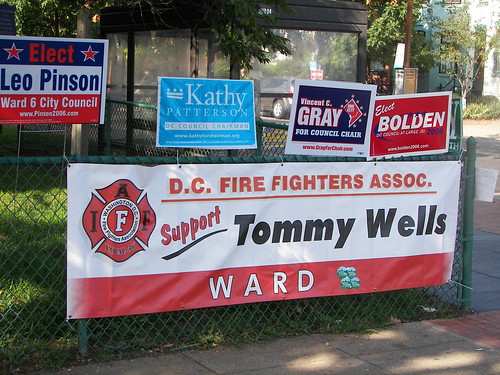Virginia Beach municipal workers unions taking positions against transit: see budget as either/or choice
When planning for light rail started in the Hampton Roads region of Virginia, the original intent was to have the system connect Norfolk and Virginia Beach, the two largest communities in the metropolitan area, and the home of the largest military bases there.
For various reasons, Virginia Beach opted out of the system, and Norfolk went ahead with it. Now that the Tide light rail system is operational, it's easier (albeit more expensive to construct) to make the case for the extension of the system to Virginia Beach. There will be a referendum this fall on the matter and so far it is expected to pass.
However, municipal unions in Virginia Beach are coming out against the light rail referendum, because they see the municipal budget as an either-or choice. As has been relatively common with municipal budgeting across the country since the economic downturn, Virginia Beach's police officers, fire fighters, and teachers haven't received wage increases.
They want wage increases--and I don't blame them.
But they see the light rail transit system as a competitor for scarce monies available within local government budgets, that if the rail system is extended to Virginia Beach, the local share for construction (as much as 10% of the cost probably) plus funds for annual operations will crowd out the opportunity for wage increases.
So the police union and the firefighters union have come out against the light rail referendum. The teachers union is likely to do so if they don't see wage increases on the horizon. See "Virginia Beach to hold light rail referendum in Nov.," "Virginia Beach police groups also say no to light rail," and "Virginia Beach firefighters union opposes light rail" from the Norfolk Virginian-Pilot.
This is a very interesting development, one that I haven't come across before.
It's chilling because other than real estate related interests (developers, lawyers, parking), municipal unions tend to be the biggest contributors to the campaign funds for local politicians, so they are major players in local politics everywhere.

Fire fighters union endorsement sign, DC election, 2006.
If municipal workers unions take on anti-transit positions as a matter of course, it will set up some interesting dynamics.
Police unions tend to be "conservative" in terms of who they support politically and they seem to be more focused on bashing "management" than anything else, although it is always couched as being focused on keeping communities safe.
Fire fighters are a little less doctrinaire, but in either case these public safety unions care mostly about wages and work rules, always positioned in terms of supporting first responders. (Even in Wisconsin, Gov. Walker felt empowered to eliminate bargaining rights for non-public safety related unions, but didn't eliminate such rights for police and fire fighters.).
Teachers unions tend to be "progressive" and progressives tend to support teachers/teachers unions in the face of the incessant campaign by conservatives to demonize teachers as the sole reason for failing schools.
(Note that the transit workers unions too tend to be focused more on their wages, less on the impact that wages and hefty pensions have on current budgeting and fares, and seem to be totally unconcerned with the quality of customer service that their workers provide.)
It would be a shame if self-interest on the part of municipal workers unions led them to take anti-transit positions. I know the choices I would make if I were to have to choose.
Labels: elections and campaigns, electoral politics and influence, infrastructure, municipal employees unions, transit, transportation infrastructure, transportation planning, voting and referendums



1 Comments:
Thank you from management goes a long way
Post a Comment
<< Home